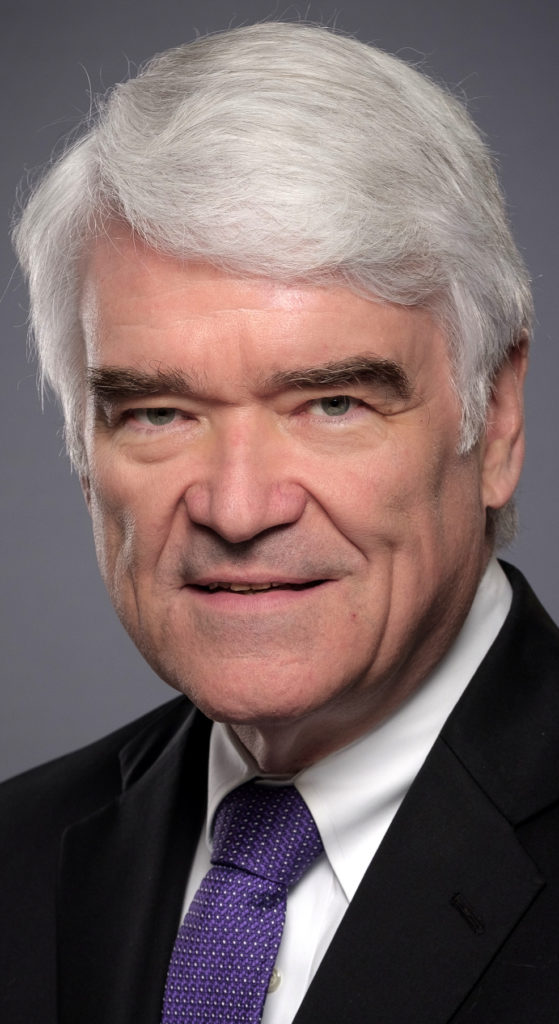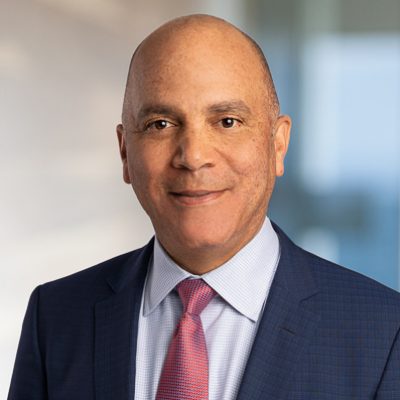Texas’ system of electing judges by party is fraught with problems and ought to be changed, current and past Texas Supreme Court chief justices told The Texas Lawbook, echoing the findings of a statewide blue-ribbon commission.
But getting there will require a steep climb, one with daunting obstacles along the way.

Partisan judicial elections – overwhelmingly financed by lawyers, law firms and their political action committees, and often decided by which party has the upper hand among voters – are “among the very worst methods of judicial selection,” said Nathan Hecht, chief justice of the high court since 2014.
“It just looks terrible,” Hecht, a longtime advocate of judicial reform, said in an interview with The Texas Lawbook.
His predecessor as chief justice, Wallace B. Jefferson, who served on the commission, agreed.
“Party affiliation is no indication of whether that person is going to be a good judge or not,” he told The Lawbook. “There are excellent Democratic judge and excellent Republican judges. Party and political influence just shouldn’t matter.”
The vast majority of voters, he noted, aren’t trial lawyers and rarely if ever set foot in a courtroom.
“Most people voting really have no idea who the judges are, what their experience or background is, whether they are diligent, ethical and so forth,” said Jefferson, now a named partner at Alexander Dubose & Jefferson. Another former chief justice, Tom Phillips at Baker Botts, has also expressed support for changing the state’s process of selecting judges.
With little else to go on, voters often simply pick the candidate whose party they favor.

As a result, Jefferson said, the stability of the judiciary is frequently disrupted by “huge election sweeps in which whole rosters of judges from one or the other party get voted out, even if they are excellent at their jobs.”
Of late, the pendulum has swung overwhelmingly to the Democrats, especially in state district court races in Texas’ most populous counties. In 2016, for example, there were 23 state district court races on the ballot in Harris County. Democrats won all 23. In 2018, there were 24; Democrats won those, too.
As a result of the 2018 election alone, according to state records, Texas lost state district judges with a combined 389 years’ experience on the bench. Almost half of incumbents on appellate courts were defeated.
Hecht said one of his unofficial duties as chief justice is to meet with foreign jurists when they visit Austin on tours of America organized by the State Department.
When he explains to these visitors that Texas judges run as Democrats or Republicans, their campaigns largely paid for by the lawyers who appear in their courts, “they can’t believe it,” Hecht said. “They think that’s the stupidest thing they ever heard of.”
Hecht commended the efforts of the 15-member Texas Commission on Judicial Selection, whose final report was issued last month. It recommended by an 8-7 vote not to continue partisan election of judges – though commission members reached no consensus on what selection method should replace those elections.
The commission was established by the Texas Legislature in 2019 with a mandate to “study and review” the state’s method of choosing judges.
In addition to Jefferson, chief justice from 2004 to 2013 and now a partner in the statewide appellate firm of Alexander Dubose & Jefferson, the commission members were:

– Chairman David J. Beck, a partner in Beck Redden of Houston who was president of the State Bar of Texas in 1995-96;
– Vice Chair Charles L. “Chip” Babcock, a partner in the Houston and Dallas offices of Jackson Walker;
– Lynne Liberato, a partner in the Houston office of Haynes and Boone;
– David Oliveira of Roerig, Oliveira & Fisher, an insurance defense firm in the Rio Grande Valley;
– Tom Phillips, Jefferson’s predecessor as chief justice from 1988 to 2004 and now a partner in the Austin office of Baker Botts;
– Martha Hill Jamison, retired justice of the Texas 14th Court of Appeals in Houston;
– Four state senators appointed by the lieutenant governor: Brian Birdwell, R-Granbury; Juan “Chuy” Hinojosa, D-McAllen; Joan Huffman, R-Houston; and Robert Nichols, R-Jacksonville;
– Four state representatives appointed by the speaker of the Texas House: Todd Hunter, R-Corpus Christi, author of the 2019 legislation establishing the commission; Brooks Landgraf, R-Odessa; Ins Minjarez, D-San Antonio; and Carl Sherman, D-DeSoto.
Texans have chosen their judges by popular vote since 1850. Today, it’s one of just six states with partisan elections for all judgeships. The others are Alabama, Louisiana, Maryland, New York and Ohio.
Eliminating partisan elections – or making any other fundamental change to how judges are selected – would require amending the Texas Constitution, and that’s a high, high bar for advocates to clear; amendments must be approved by two-thirds of each house of the Legislature, then by a majority of voters. With many state lawmakers on record as opposing any change – and Lt. Gov. Dan Patrick, who presides over the Texas Senate, having, at a minimum, expressed skepticism – the betting odds are that the commission’s recommendations will come to naught, joining at least a dozen previous reform efforts.
“It’s an uphill climb,” Jefferson acknowledged, “but I think it’s well worth the fight.”
In addition to narrowly rejecting partisan elections, the commission narrowly opposed nonpartisan elections. Typically, these entail a single primary for all candidates – not identified by party on the ballot – with the top two finishers moving on to a general election.
The commission overwhelmingly opposed the appointment of judges by the governor, essentially analogous to the federal system of nomination by the president and confirmation by the U.S. Senate.
Those alternatives are what commissioners didn’t want. They could reach no consensus, however, on what Texas should do instead.
The panel split 7-7 (with Hunter, the Corpus Christi lawmaker, abstaining) on whether to recommend some form of the appointment/retention systems used for at least some judgeships in most states. Broadly, and with significant state-to-state variations, this method involves gubernatorial appointment of judges, often with input from a selection commission and often subject to legislative confirmation. Once on the bench, judges stand for periodic “retention elections,” appearing on the ballot unopposed for simple “yes” or “no” votes on whether they should keep their jobs.
Any alternative considered by the commission would address what is widely recognized as a major problem with partisan elections: the need for candidates to raise vast sums of money. By a vote of 11-4, the commission called for tighter regulation of campaign contributions.
Babcock, the vice chair, cited statistics from the Texas Ethic Commission showing that total contributions to judicial candidates jumped from about $21.3 million in 2016 to more than $35.9 million in 2018. In both election cycles, two-thirds of that cash came from lawyers, law firms or law firm PACs. Many if not most of those lawyers and firms “had, or would likely have, cases before the judges seeking election,” he said.
“It creates the appearance that justice is for sale,” Babcock said in an interview. Based on his decades of practice, he said, he doesn’t buy that. “But many, many people do, including a very high percentage of the minority community,” he said. “They believe justice is not administered in an evenhanded way. That undermines public confidence.”
Beck, the commission chair, agreed.
“With the overwhelming majority of judges, it makes no difference when you appear in their courts whether your firm contributed to their campaigns,” he told The Lawbook. “But it just looks bad, especially to the litigants who lose. It’s very difficult to convince them they were treated fairly if they know the other side contributed more money to the judge than their lawyers did.”
The commission’s lack of consensus on appointment/retention reflects a larger division of opinion – in Austin, within the bar and among voters – on whether to tinker with the present system, whatever its flaws.
“Plainly, all methods of judicial selection have both positive and negative attributes,” the final report said.
Significantly, all four state senators on the commission and two of its four House members voted to maintain the status quo.
In a letter to Beck, the four senators wrote: “[O]pinions differ widely regarding which if any of these alternatives might be superior to our current process. … This is an extremely complex issue that the Legislature has grappled with for decades.”
They concluded: “[I]n our opinion, there is no compelling evidence to suggest that the state of Texas should strip a Texan’s right to vote for their preferred judicial candidates.”
Liberato, the Haynes and Boone partner who was the designated commission appointee of the state bar, also voted to stick with the present system. In recent elections, she noted, “many judges, especially women of color, played by the old rules and won. … To now change the method we use to select judges would cast a shadow on the entire process.”
On other questions, there was broad agreement among commission members:
– They unanimously agreed that any change to the status quo should not affect judges elected under the current system.
– By a vote of 13-0 with two abstentions, they opposed term limits for judges.
– By a vote of 12-1 with two abstentions, they recommended increasing the minimum qualifications for judges.
At present, any Texas lawyer between the ages of 25 and 74 can serve as a state district judge provided he or she has lived in the district for two years and practiced for four. Appellate judges must be 35 to 74 and have practiced for 10 years.
In theory, then, a 35-year-old lawyer who’s handled traffic tickets for 10 years could sit on the Texas Court of Criminal Appeals, ruling on appeals of capital murder convictions – deciding whether someone should live or die.
That makes no sense, Hecht said.
“Judges can commit you to prison. They can award damages against you, take your kids away from you or shield you from the government,” the chief justice said.
“Do we really want anybody but the best qualified people doing all that?”
